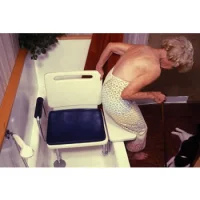According to a new study, the risk of
hospital readmission or death at thirty days following hospital discharge for fee-for
service Medicare beneficiaries who received care at a skilled nursing facility (SNF)
was not significantly lower despite better performance on various measures of
quality of care.
Nearly one in five Medicare beneficiaries is readmitted within thirty days of discharge. Readmissions are both costly and preventable. SNFs represent the most common setting for post-acute care in the United States. To date, little is known about the association between the performance measures and the risk of hospital readmissions.
The study was conducted by Mark D. Neuman, MD, MSc, of the University of Pennsylvania, Philadelphia, and colleagues. The findings show that 21 percent of the 1,530,824 discharges to SNFs were readmitted within 30 days. 4.7 percent of patients died within 30 days of hospital discharge. Overall, the rate of 30-day readmission or death was 23.3 percent.
Despite better performance of SNFs on measures such as better staffing and better facility inspection, these improvements were not transferred to improvements in readmission and death rates. SNFs that had better facility inspection ratings demonstrated only a slightly lower adjusted risk of readmission or death. Better staffing ratings had no meaningful impact on the readmission or death rates. Similarly, other measures did not predict any clinically meaningful difference in the adjusted risk of readmission or death.
The study authors write, “Our results provide new information to inform the efforts of hospitals, health systems, and insurers to reduce rates of hospital readmission through more effective use of post-acute care. Ultimately, although SNF performance measurement plays an important role in promoting transparency and accountability in the US healthcare system, our findings suggest that in their current form they are unlikely to serve as a sole basis for large-scale reductions in readmissions unless accompanied by other strategies.”
Elizabeth A. McGlynn, PhD, and John L. Adams, PhD, of the Kasier Permanente Center for Effectiveness and Safety Research in Pasadena, California point out that the study did not look at other processes that could have an impact on outcomes of interest such as readmission or death. “Measures that work for one purpose and not another are still valuable. Future studies of quality measures should establish a clear framework and expectations for the intended goals of quality measures. Both reports make it clear that a great deal of additional work is needed to achieve the quality measures necessary for a more complete characterisation of system performance and potential improvement opportunities.”
Source: JAMA
Image Credit: Bizjournals.com










